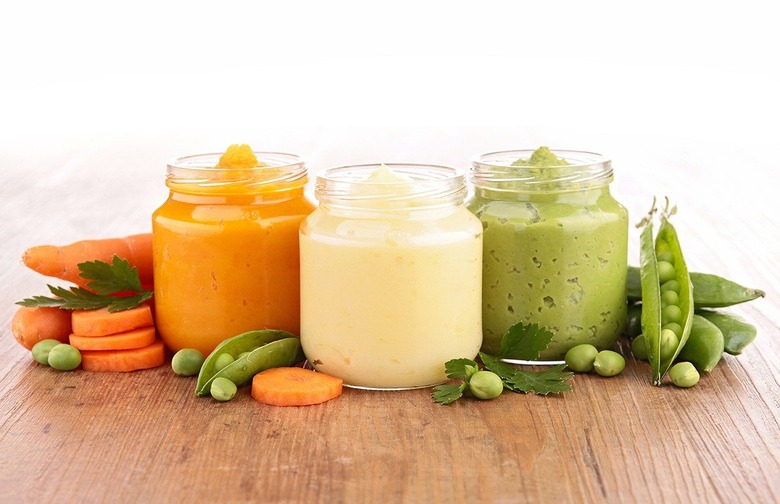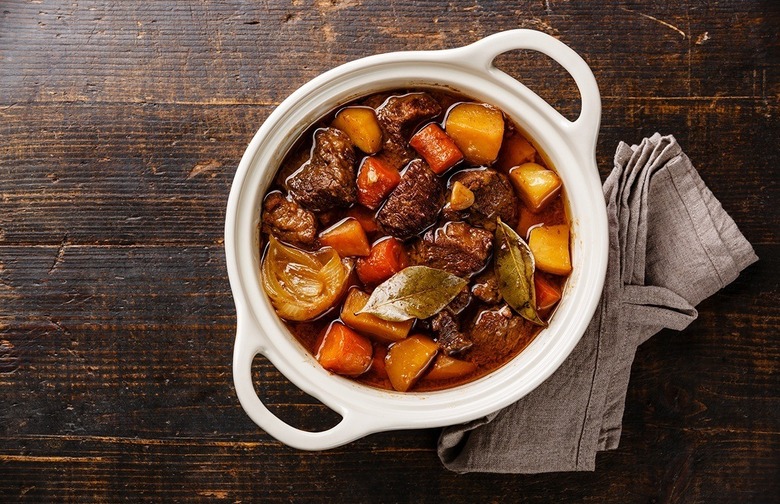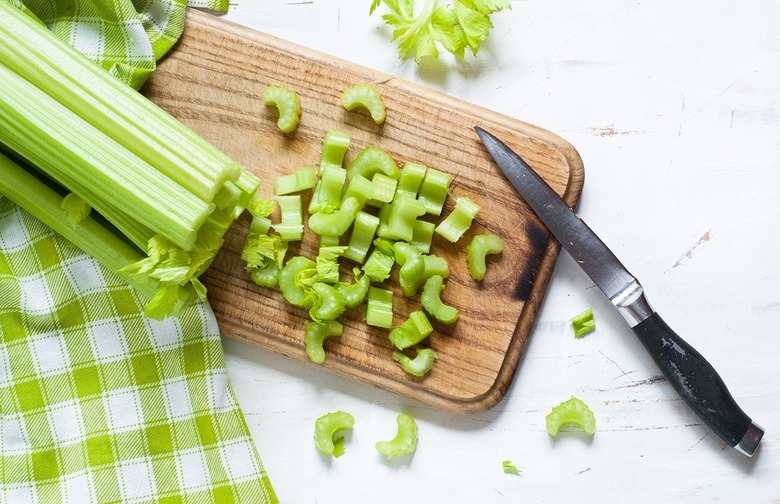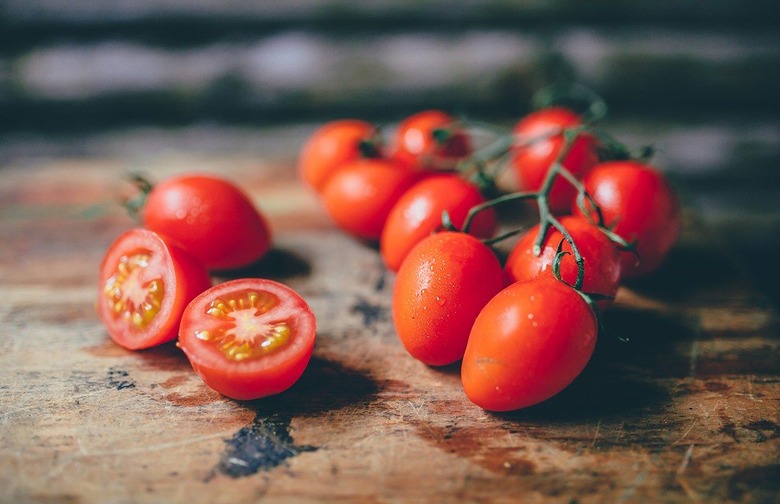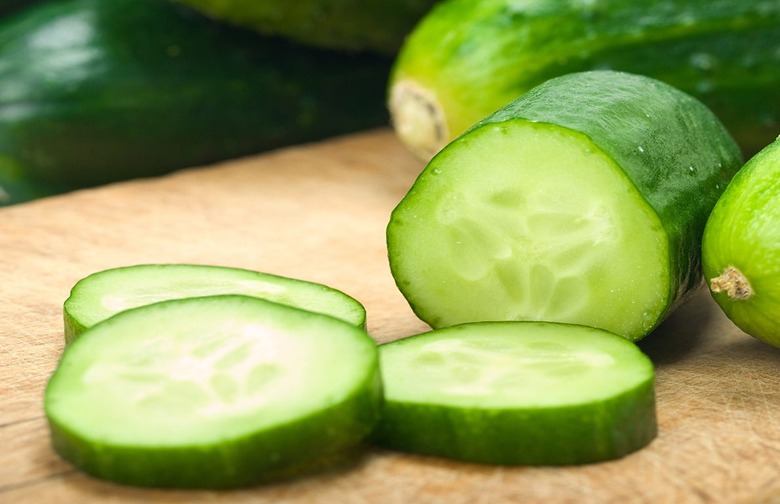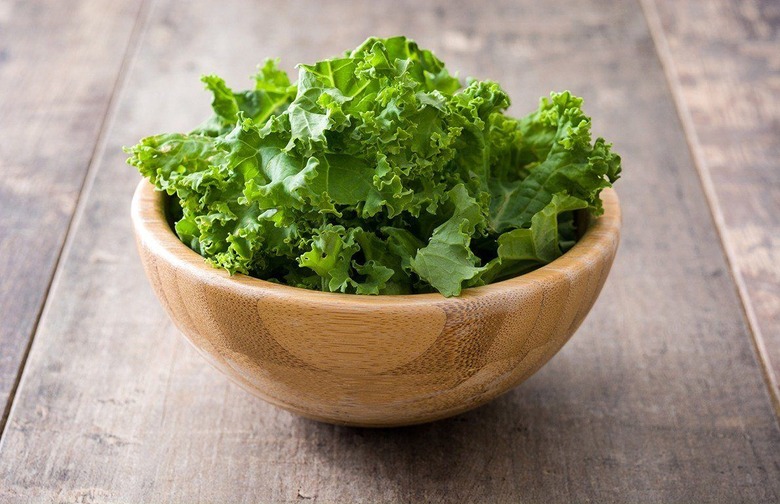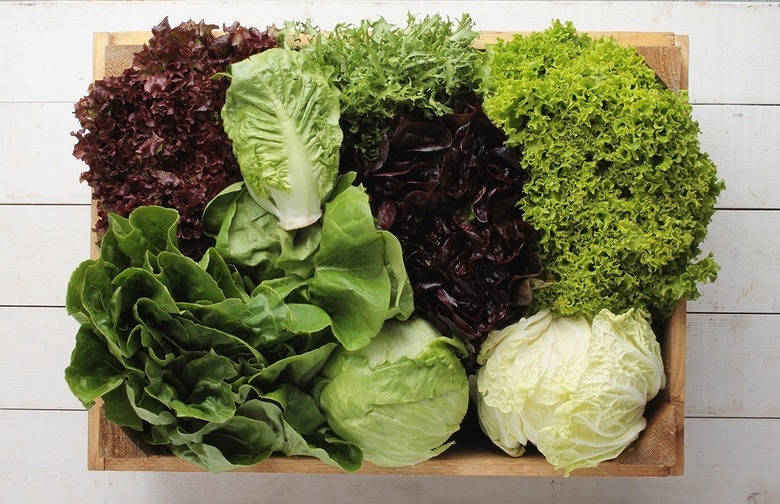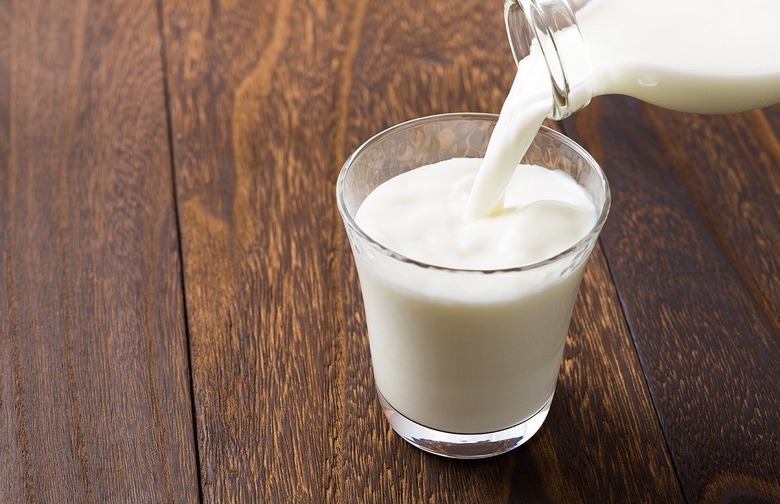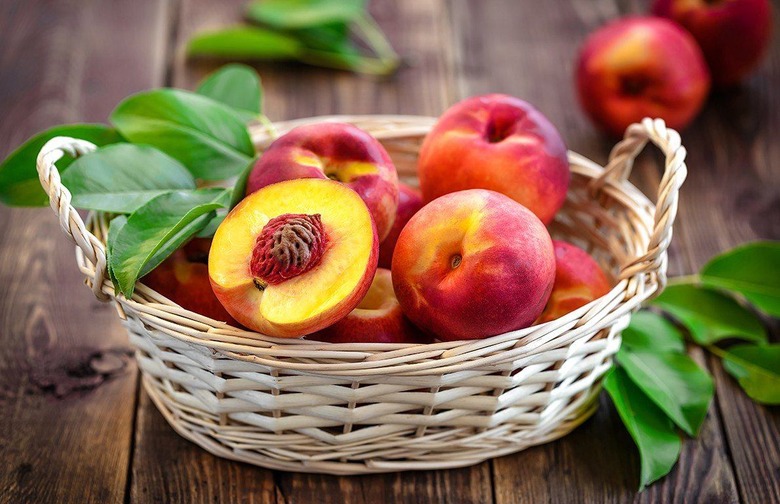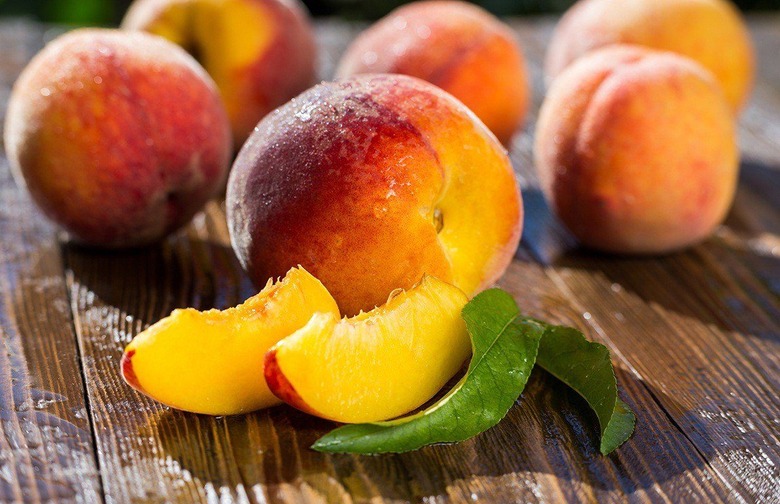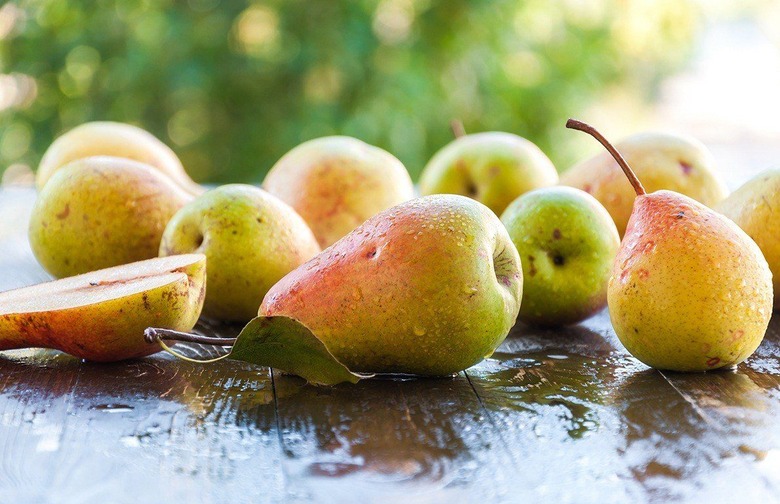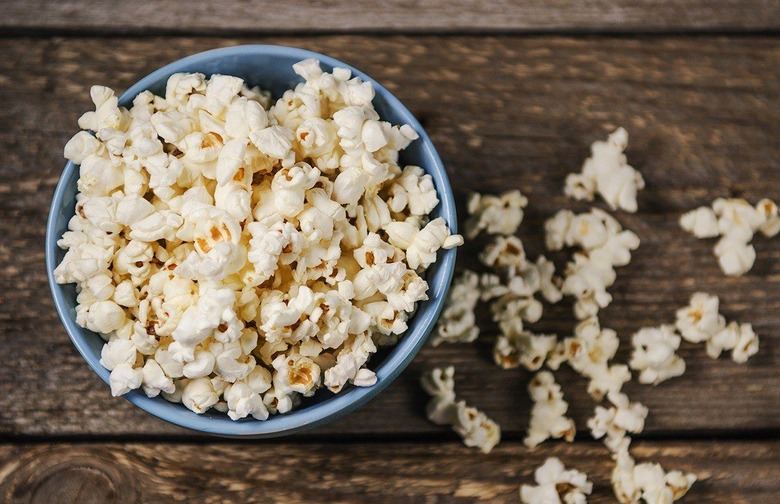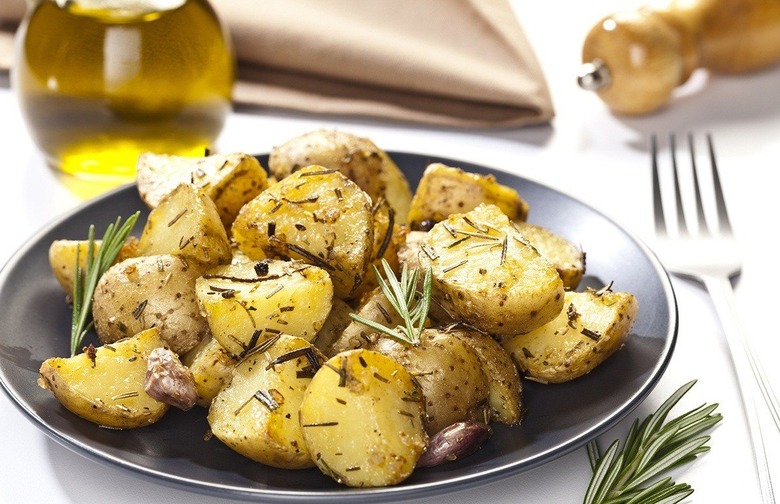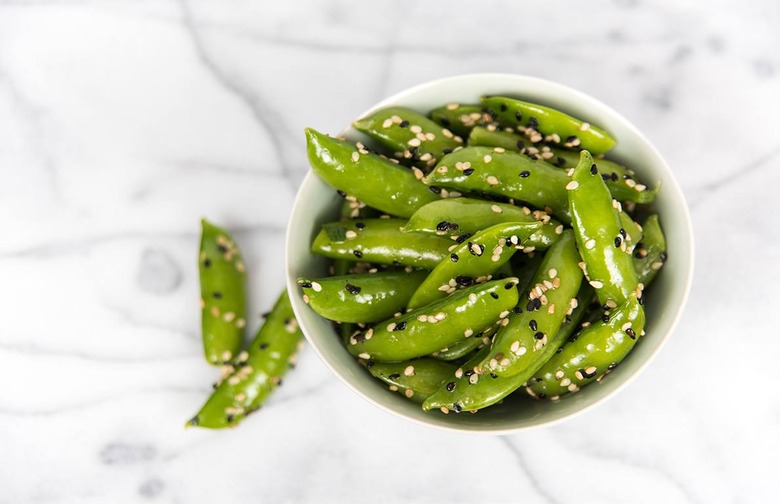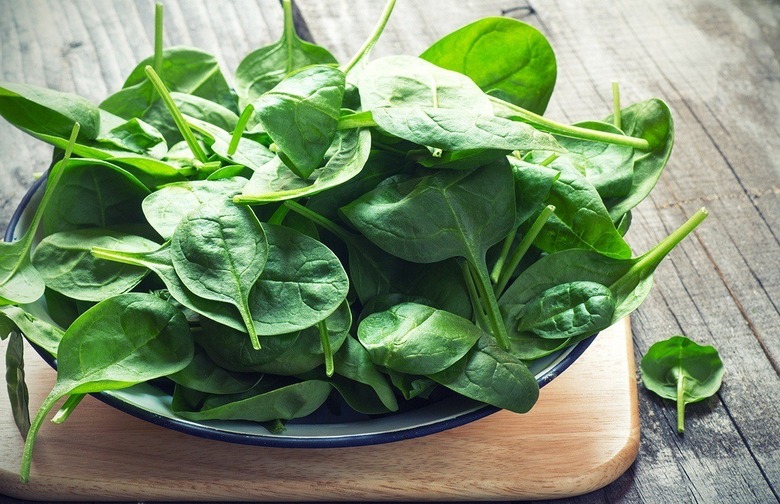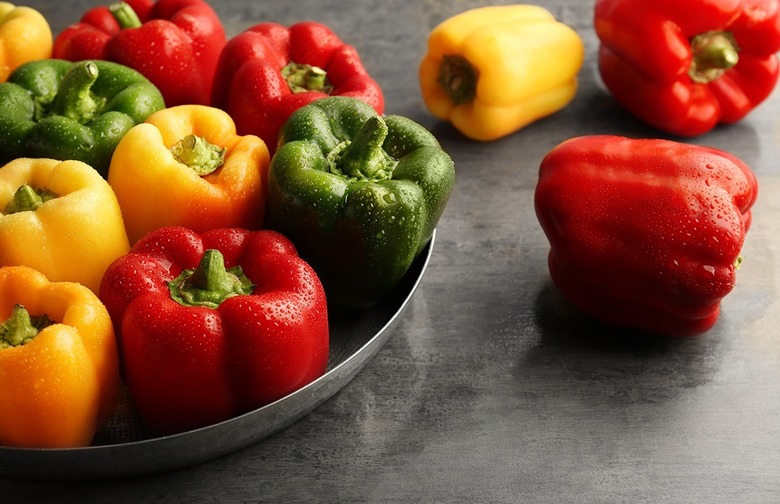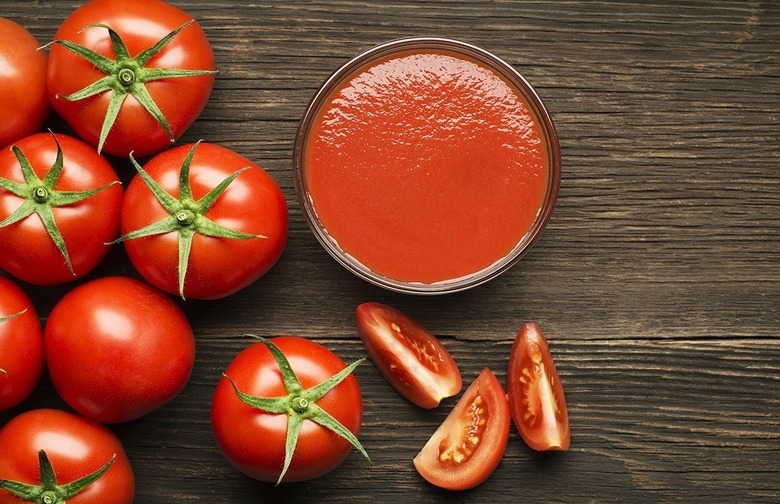25 Foods That You Should Always Buy Organic
Every year, the USDA Pesticide Data Program releases a report outlining the pesticide residue on popular produce. The nonprofit Environmental Working Group (EWG) takes it upon themselves to analyze the dense report and produce a "Dirty Dozen List" documenting which conventionally raised foods contain the highest concentration of chemical residue. On top of the list are some surprising names — who would've thought spinach is one of the dirtiest food items out there? So if you want to avoid chemical residues on your foods you should always buy the organic version of these 25 foods.
Apples
Based on the EWG survey, 99 percent of apples surveyed were found to contain at least one type of pesticide residue. Apples are the perfect food to keep you alert and focused throughout the work day, so buy the organic variety and keep them in your diet.
Baby Food
For parents, nothing is more important than the health of their children. Buying organic baby food helps limit an infant's exposure to pesticides and other food contaminants. Organic baby food can be expensive, so sometimes making healthy baby food at home is a better option.
Beef
Eating beef has grown increasingly controversial because of the impact that cattle have on the environment and the negative consequences of a diet rich in heavily processed red meat. Organic beef is raised in more hospitable conditions and cannot be directly exposed to artificial pesticides, fertilizers, hormones, or genetically modified feed (with some exceptions).
Blueberries
This spring berry is one of the most sought-after superfoods, but conventional blueberries were found to contain up to 50 different pesticide residues. Use organic blueberries to make these four wonderful desserts that will help you lose weight.
Carrots
The USDA Pesticide Data Program found 26 different pesticide residues on varying samples of carrots. This is especially troubling because carrots are often consumed raw and by children, who have a less developed immune system. Conventionally grown carrots contain 70 percent more linuron, a popular herbicide, than their organic counterparts.
Celery
Celery is considered a "negative-calorie food," meaning you can eat as many stalks as you want without gaining weight, but despite being a diet staple, it is riddled with over 60 different types of pesticides.
Cherry Tomatoes
The USDA pesticide program reported that — despite their adorable appearance — the cherry tomatoes sampled contained over 69 different pesticides. Foods that can be consumed skin and all are especially susceptible to pesticide contamination.
Chicken
Conventionally raised chickens aren't threatened by pesticide use, but they're exposed to many of the other horrors industrial agriculture. Organic chicken are spared from sub-therapeutic antibiotic use (which creates antibiotic resistant bacteria) and growth hormones, and they have to be fed organic feed.
Cucumbers
They're delicious dipped in hummus or juiced with yuzu and Thai basil, but cucumbers were ranked in the EWG 2015 report as the ninth dirtiest food. Conventionally grown cucumbers were found to contain 86 different types of pesticides, which is especially hazardous because they're often eaten skin-on.
Eggs
Conventionally raised eggs face the same risks as the conventionally raised chickens. Organic eggs are free from agricultural chemical residues and come from chickens that are free to roam around and are fed an organic feed.
Grapes
Grapes are wonderful additions to salads, smoothies, and even gazpacho, but these bite-sized fruits are one of the dirtiest vegetables around, ranking eighth on the EWG's 2017 list.
Hot Peppers
USDA tests of 739 samples of hot peppers from 2010 to 2011 found dangerous levels of three insecticides— acephate, chlorpyrifos, and oxamyl. These chemicals are banned on some crops but permitted to be used on hot peppers. Peppers are important to many cuisines (and may even help you live longer), but just be sure to buy chiles grown organically.
Kale
Everyone's favorite superfood is not as pure and innocent as advertised. Kale ranked No. 19 on the EWG's 2017 "Dirtiest" list, which is due to the fact that its leaves are directly exposed to pesticides — unlike avocados or bananas, whose skins shield their edible portions.
Lettuce
Lettuce ranked No. 15 on the EWG's "Dirty Dozen" list because, similar to kale, its leaves are vulnerable to direct contamination from pesticides. When it comes to lettuce, buy organic if possible — but if you only have the conventional stuff available, give it a thorough washing. Lettuce might not be the most exciting salad green, but the tough leaves are perfect for wraps.
Milk
Milk is one of the few agricultural commodities that are healthier when produced using organic methods. Research shows that organic milk contains more omega-3s, antioxidants, and conjugated linoleic acid — a chemical naturally found in dairy products that accelerates metabolic rate. Organic cows are grazed on pastures and therefore not contaminated by harmful chemicals, such as the pesticides and fertilizers that are liberally sprayed on non-organic grazing lands.
Nectarines
This one might come as a surprise, but nectarines are the third most pesticide-riddled produce items. More than 98 percent of nectarines sampled tested positive for residue of at least one pesticide.
Peaches
Genetically, there's not much difference between a peach and a nectarine, but nectarines are more likely to be affected by diseases, which is why they're a little higher on the list. That being said, peaches still ranked fifth on EWG's Dirty Dozen, and almost always contain the residue of at least one pesticide.
Pears
Whether they're baked, poached, or added to salad, pears are usually consumed skin and all, which can be a problem for a food that's covered in chemicals. A 2010 USDA pesticide report found that conventionally grown pears contained 40 percent more pyrimethanil (a broad spectrum fungicide) than those grown organically.
Popcorn
You can eat as much popcorn as you want without gaining weight (unless it's the movie theater variety drenched in radioactive-yellow soybean oil), but more than 75 percent of corn grown in the United States is pre-coated with neonicotinoids — a new class of insecticide that has been damaging bee populations. Do your part to curb the use of this new insecticide by buying organic popcorn.
Potatoes
Potatoes roll in at No. 12 on the EWG's 2017 Dirty Dozen list. The gruff tuber is a popular food staple and can be part of a healthy diet by using these recipes, but a majority of potatoes grown in the United States are transformed into French fries and potato chips. Conventionally grown potatoes are covered with 80 percent more chlorpropham — a plant regulator and herbicide that has been found to be mildly toxic in high doses — than organically grown varieties.
Snap Peas
Snap peas offer a delicate sweetness and satisfying crunch, and are usually available seasonally at farmers markets. But while domestically grown snap peas are fine, imported snap peas are more likely to be contaminated with chemicals. Snap peas are commonly sprayed with dimethoate, an insecticide that is a suspected hormone disruptor.
Spinach
This superfood might be the foundation of a healthy meal, but spinach leaves are the second dirtiest food item according to the EWG. Recent results from a 2015 USDA study showed that the 683 spinach samples collected contained "far more pesticides by weight than all other crops tested," and double the amount found on all other Dirty Dozen crops.
Strawberries
Strawberries are sweet and tart, making them the perfect accomplice to summer desserts like strawberry shortcake, but don't let their bright, rosy exterior fool you — strawberries top the list of EWG's 2017 Dirty Dozen. Almost all strawberry samples contained some sort of pesticide, with one particular batch showing over 20 different pesticides. If you love strawberries (and let's be honest, who doesn't?) then you really need to consider buying the organically grown variety.
Sweet Bell Peppers
Sweet bell peppers are bright, colorful, and a summertime superfood, but they still made EWG's 2017 Dirty Dozen. Conventionally grown bell peppers contain a substantial amount of thiamethoxam, a chemical that has been found to be toxic to bee populations.
Tomatoes
Slices of tomatoes are found on everything from BLTs to grilled cheese, but their thin skin makes them especially susceptible to absorbing chemical sprays.

